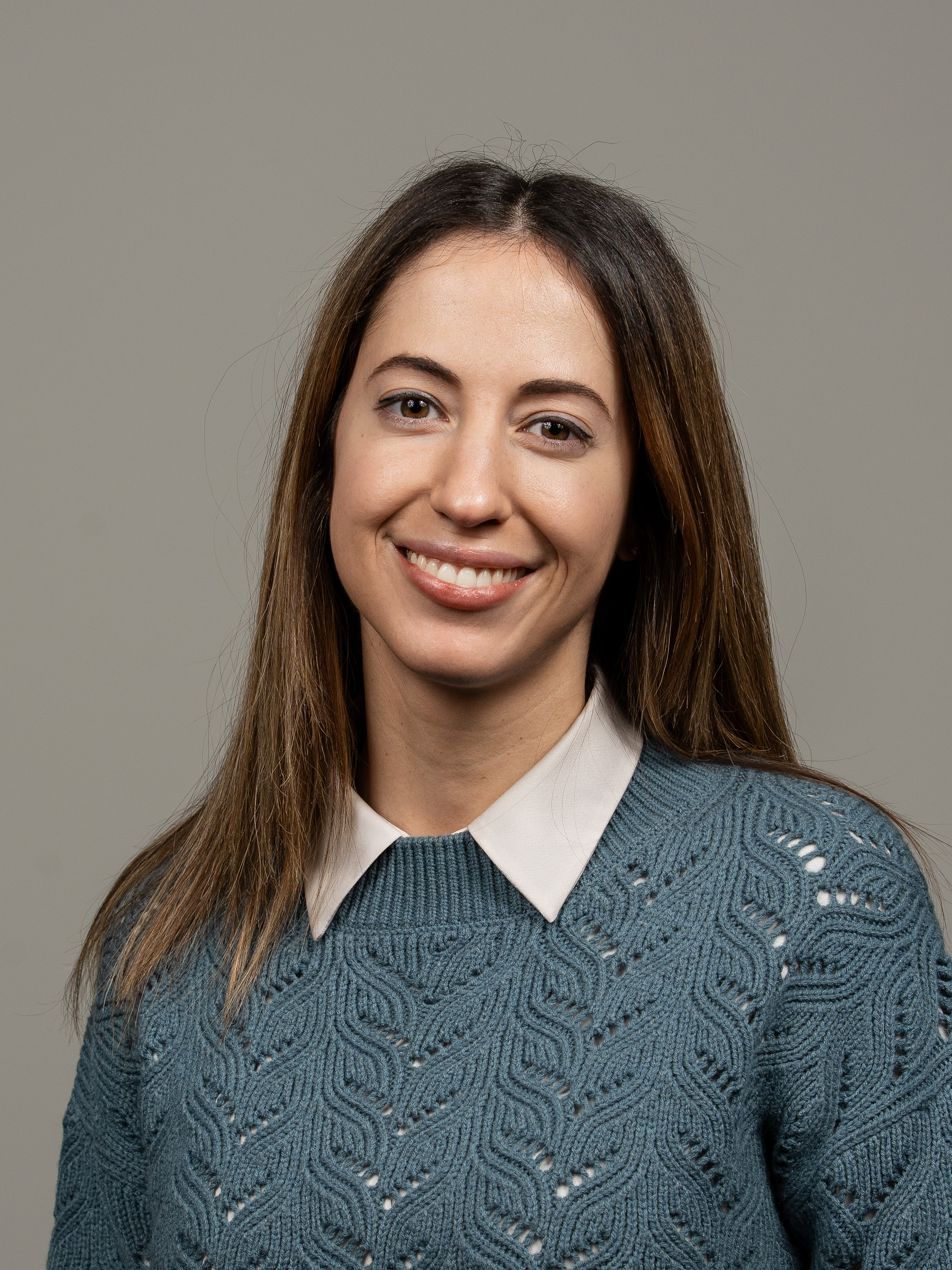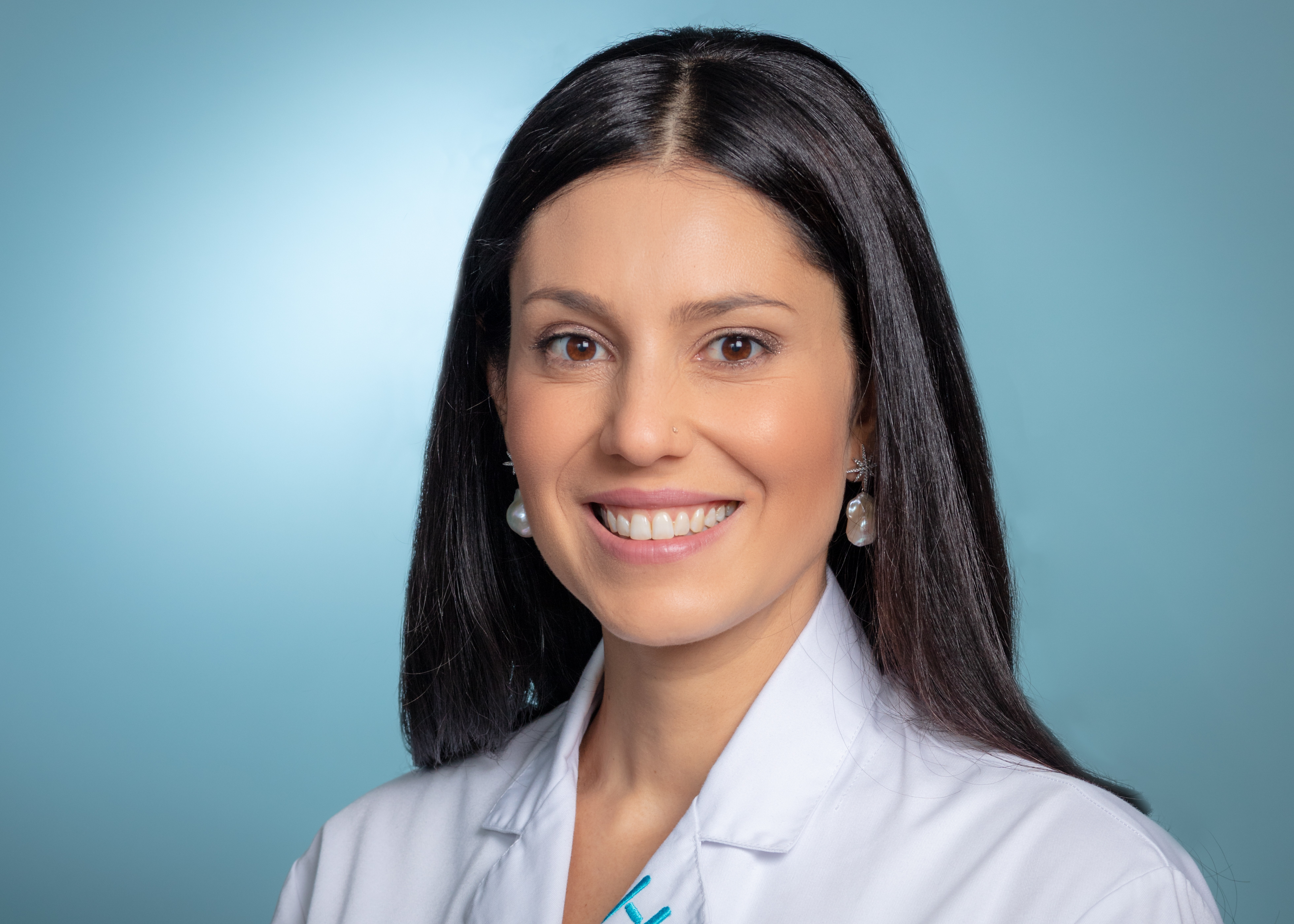Y-ECCO Interview Corner: Sophie Restellini
Maria Manuela Estevinho, Y-ECCO Committee Member
|
|
Sophie Restellini is a familiar name to many in the ECCO Community. She serves as Director of the Center for Crohn’s and Colitis in Geneva and is an Adjunct Professor at McGill University Health Center in Montreal. In this month's Y-ECCO Interview, we delve into Sophie’s career, her connection with ECCO, her contributions to the field of IBD field and her insights into the future of IBD treatment and education.
What inspired you to pursue a career in gastroenterology, and what led you to focus specifically on Inflammatory Bowel Disease (IBD)?
Coming from a family of physicians (and gastroenterologists) naturally shaped my interest in the field. What truly stood out to me about gastroenterology is its remarkable diversity – it spans multiple organs and a wide range of conditions, and offers a dynamic combination of clinical diagnosis, endoscopic procedures and imaging. I also value the balance within the specialty, as it allows us to care for a broad spectrum of patients, from the young to the elderly, and across genders. The ability to both diagnose and monitor diseases while performing therapeutic interventions makes gastroenterology a particularly comprehensive and engaging discipline.
Beyond the technical aspects, what has always driven me most is the physician–patient relationship. This is where I feel most at ease and able to make a meaningful impact. From early on, I knew I wanted to focus on chronic disease management, where continuity of care and a personalised approach are essential. IBD, in particular, requires not just medical expertise, but also a deep understanding of each patient’s unique journey. This blend of scientific challenge and human connection is what makes the field so rewarding for me.
You’ve trained and worked in both Canada and Switzerland. How have these experiences shaped your perspective on IBD management?
I was born in Canada and have always felt a strong connection to the country. The kindness of the people and the culture of collaboration have always remained close to my heart. It was essential for me to complete part of my training there, not just for personal reasons but also for the unique professional opportunities it provided. Switzerland is a small country, and training at McGill gave me the chance to work in a major centre of excellence. The volume and diversity of cases, coupled with the advanced research infrastructure, offered opportunities that could not have been replicated back home. This experience not only broadened my clinical exposure but, more importantly, gave me the chance to learn from a variety of mentors, each with their own approach to patient care, helping to shape my own. Among them, Professor Alan Barkun stood out as the most inspiring and influential, with his expertise, dedication and passion for gastroenterology profoundly shaping my approach to medicine. I feel incredibly fortunate to have been part of a welcoming and supportive team that truly believed in me. Their trust gave me the confidence and skills I needed to return to Switzerland and establish the first IBD centre in Geneva. Coming back, I became even more aware of how privileged we are in Switzerland in terms of access to resources and treatment options. This experience reinforced my commitment to optimising patient care by combining the structured, evidence-based approach I learned in Canada with the flexibility and innovation that define the Swiss healthcare system.
|
Sophie Restellini |
Your involvement with ECCO and IBDnet has been extensive. How have these networks influenced your career? Can you share a defining moment from your work with ECCO that had a lasting impact on you?
Being part of ECCO and IBDnet has been incredibly enriching, both scientifically and personally. These networks have allowed me to collaborate with leading experts and contribute to meaningful projects. Through networking, I've gained valuable insights and inspiration, as well as a deeper understanding of the healthcare realities in different countries. One defining moment was my role in co-leading the ECCO Topical Review on prognostic factors in IBD. This project was particularly meaningful as it generated fascinating discussions and fresh perspectives on precision medicine in our field. Teaching has always been a passion of mine, and creating our course on real-world data methodology in IBD was an incredibly fulfilling experience. Equally rewarding has been the opportunity to teach and engage with younger learners through workshops and advanced courses at ECCO. I’m excited to continue my involvement in education at ECCO through the EduCom Committee, where I look forward to contributing further to the development and dissemination of knowledge in the field while continuing to learn from both my colleagues and the students.
From your perspective, what are the most significant challenges the global IBD Community is currently facing, both in advancing treatments and in providing quality patient care?
One of the biggest challenges is ensuring equal access to advanced treatments. Despite significant progress in IBD therapies, access remains restricted in some regions due to financial and regulatory barriers. Another key challenge is the heterogeneity of treatment responses – what works for one patient may not work for another, highlighting the need for precision medicine. Additionally, the psychosocial burden of IBD is often underestimated. Beyond medical treatments, we need to improve multidisciplinary approaches that integrate psychological support, lifestyle interventions and patient education to enhance overall well-being.
Precision medicine is revolutionising IBD treatment. How is this approach changing the way doctors diagnose and treat IBD patients?
Precision medicine is revolutionising IBD treatment by emphasising the need to personalise care and treatment strategies. We now understand that a one-size-fits-all approach is insufficient, and instead we focus on tailoring treatments based on each patient's unique characteristics. By using biomarkers, genetics and advanced technologies, we hope to better predict disease progression, particularly unfavourable outcomes, as well as how patients will respond to specific treatments. This shift allows us to optimise treatment plans, reducing the risk of unnecessary side effects and increasing the likelihood of better outcomes. Furthermore, it opens the possibility of identifying early signs of disease or even maybe one day preventing its onset. Ultimately, the goal of precision medicine is to offer more effective, targeted and personalised care, improving clinical outcomes and enhancing the quality of life for patients with IBD.
As a woman in medicine and research, have you faced any unique challenges on your path to leadership? What steps do you think the medical and research communities need to take to ensure more women reach leadership roles?
Like many women in medicine, I’ve encountered challenges related to visibility and career progression, especially in leadership roles, where women are still underrepresented. Unconscious biases persist in how leadership potential is assessed, and balancing professional and personal responsibilities can be more complex for women. To help more women reach leadership positions, we need robust mentorship programmes, institutional policies that promote work–life balance and intentional efforts to foster diversity in academic and clinical leadership. Representation is crucial, and having more women in prominent leadership roles will help pave the way for future generations.
With such a demanding career, how do you find balance between your professional responsibilities and personal life?
In a world that constantly demands more, I’ve come to realise that true balance isn’t a rigid formula but a dynamic and evolving process. It’s about learning to navigate the delicate tension between professional responsibilities and personal fulfillment with intention, flexibility and organisation. Life is an ever-changing landscape, where some days will naturally lean more toward work while others are devoted to personal time. Balance doesn’t equate to perfection. There will be days when everything flows perfectly and others when things don’t go as planned, and that’s perfectly okay. It’s also about surrounding yourself with a supportive team, both at work and at home, which enables effective delegation and collaboration. Equally important is cultivating empathy, not only for others but also for yourself. Realising that it's fine not to be perfect is a powerful mindset. Ultimately, balance is about making conscious choices that align with your core values, being present in each moment and finding harmony between your career and personal life.
Lastly, for young researchers and doctors interested in IBD, what advice would you give on building a successful career in both clinical practice and research?
Stay curious, passionate and open to learning. IBD is a rapidly evolving field, and continuous education and engagement in research are essential. Seek out mentors who can guide you, and don’t hesitate to get involved in international networks like ECCO to foster collaborations early in your career. An academic journey doesn’t happen by accident – if that’s your goal, get involved in research that matters, connect with people who inspire you and don’t underestimate the power of sharing your work and ideas early on. Academia values visibility, originality and perseverance. But most importantly, find what truly drives you and pursue it with dedication because meaningful work is what ultimately sustains a successful and fulfilling career.
Thank you, Sophie, for your time and for sharing such inspiring insights with us.




